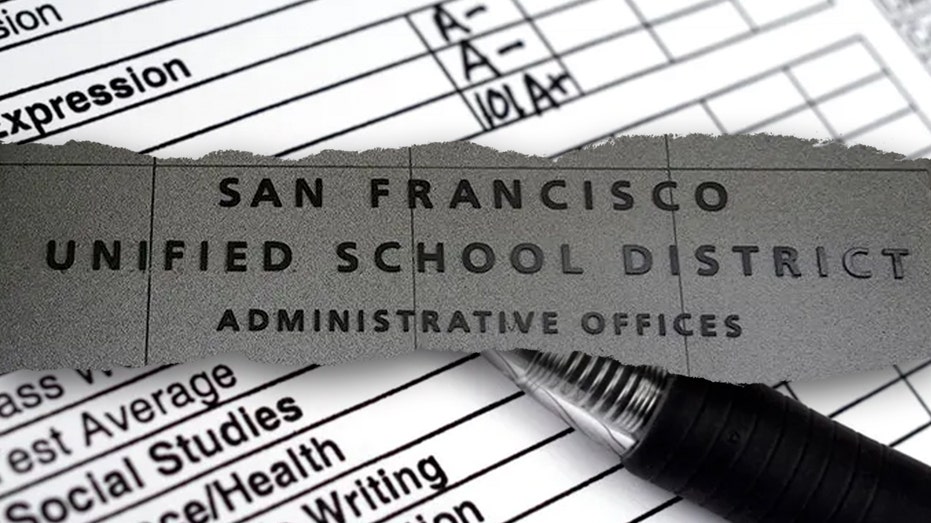The San Francisco school district has chosen to withdraw a proposed educational strategy known as “Grading for Equity,” which sparked significant controversy and criticism from various members of the community. This decision comes as educators and parents raised concerns over the potential implications of the grading system, arguing that it could dramatically alter educational standards and undermine academic rigor.
The “Grading for Equity” initiative aimed to reform traditional grading practices, emphasizing a more lenient approach to ensure that all students, regardless of their background or circumstances, could achieve passing grades. Advocates of the initiative believed that it would reduce disparities in academic performance among students from diverse socio-economic backgrounds. However, many opponents argued that this approach would prioritize equity over excellence and could lead to a decline in educational quality.
As discussions around the initiative unfolded, community members expressed strong opinions, igniting fierce debates across various platforms, including school board meetings, social media, and community forums. Parents and educators voiced their concerns that the proposed grading strategy could diminish the value of hard work and academic achievement, making it difficult for students to be adequately prepared for higher education or the workforce.
Critics pointed out that the move to make grading more equitable could inadvertently set lower expectations for students, potentially depriving them of the motivation to excel. Many argued that rigorous academic standards were crucial for fostering a culture of achievement and personal responsibility. The concern was that if students were graded based on equitable criteria, the educational experience could become less competitive, thereby leaving high-achieving students with fewer academic challenges.
In response to the backlash, the San Francisco school district held a series of open meetings aimed at addressing community concerns regarding the initiative. During these sessions, stakeholders were encouraged to share their thoughts, and the district received a plethora of feedback advocating for a more balanced approach to grading that maintained high standards while also being inclusive. This feedback played an influential role in the district’s decision to reconsider its proposed changes.
The school district acknowledged the community’s response, stating that it’s crucial to find a solution that reflects both the values of inclusivity and the necessity of academic excellence. In a recently released statement, district officials noted the importance of families, educators, and students in shaping educational policies and recognized that meaningful dialogues are essential to fostering a collaborative educational environment.
As a result of this feedback and the overall backlash, the school district has formally announced that it will not implement the Grading for Equity strategy as originally planned. Instead, district leaders are now focusing on developing a new framework that would incorporate the principles of equity without compromising on educational quality. This new approach would prioritize a tailored educational experience that supports students’ diverse needs while maintaining clear expectations for all learners.
Educational experts and advocates for equity in education expressed a mixed bag of reactions to the school district’s backtrack. Some applauded the decision as a sign that community input is valued and capable of influencing policy. Others, however, cautioned against abandoning the goal of equity entirely. They argue that it remains vital to confront systemic inequalities that persist in educational settings and that any new grading system must still strive to address these disparities.
Looking forward, the San Francisco school district is under pressure to not only create an effective grading framework but also to engage in ongoing dialogue with parents, students, and educators. There is a recognition that the educational landscape is continuously shifting, requiring flexibility and adaptability in policymaking. School officials have indicated they plan to conduct further research and consult educational best practices from other institutions to inform their revamped approach.
In addition to focusing on grading strategies, community leaders have urged the district to allocate resources toward supportive measures that enhance student success. These measures could include tutoring programs, mental health resources, and initiatives aimed at fostering parental involvement in the educational process. Such strategies could help create an environment where equity is woven into the fabric of education without sacrificing academic rigor and integrity.
The discourse around “Grading for Equity” is not unique to San Francisco; similar discussions are unfolding across the United States. Multiple school districts are grappling with how to balance equity with excellence, a conversation that often elicits strong emotions from differing sides. There is an increasing drive to ensure that all students have access to quality education and resources, but this often leads to diverging opinions on how to achieve those goals.
As the San Francisco school district recalibrates its grading policies, it finds itself at the intersection of these national conversations about equity in education. Stakeholders remain hopeful that the district can find a pathway that honors the commitment to inclusivity while also setting high expectations for all students. Ultimately, the goal remains to provide a high-quality education that equips every learner with the skills necessary for future success, regardless of their starting point.
The situation in San Francisco highlights the complex challenges that educational institutions face in trying to navigate the delicate balance between equitable access to education and maintaining rigorous academic standards. This ongoing dialogue serves as a reminder of the importance of community involvement and collective insight in shaping educational policy that is both fair and effective.































